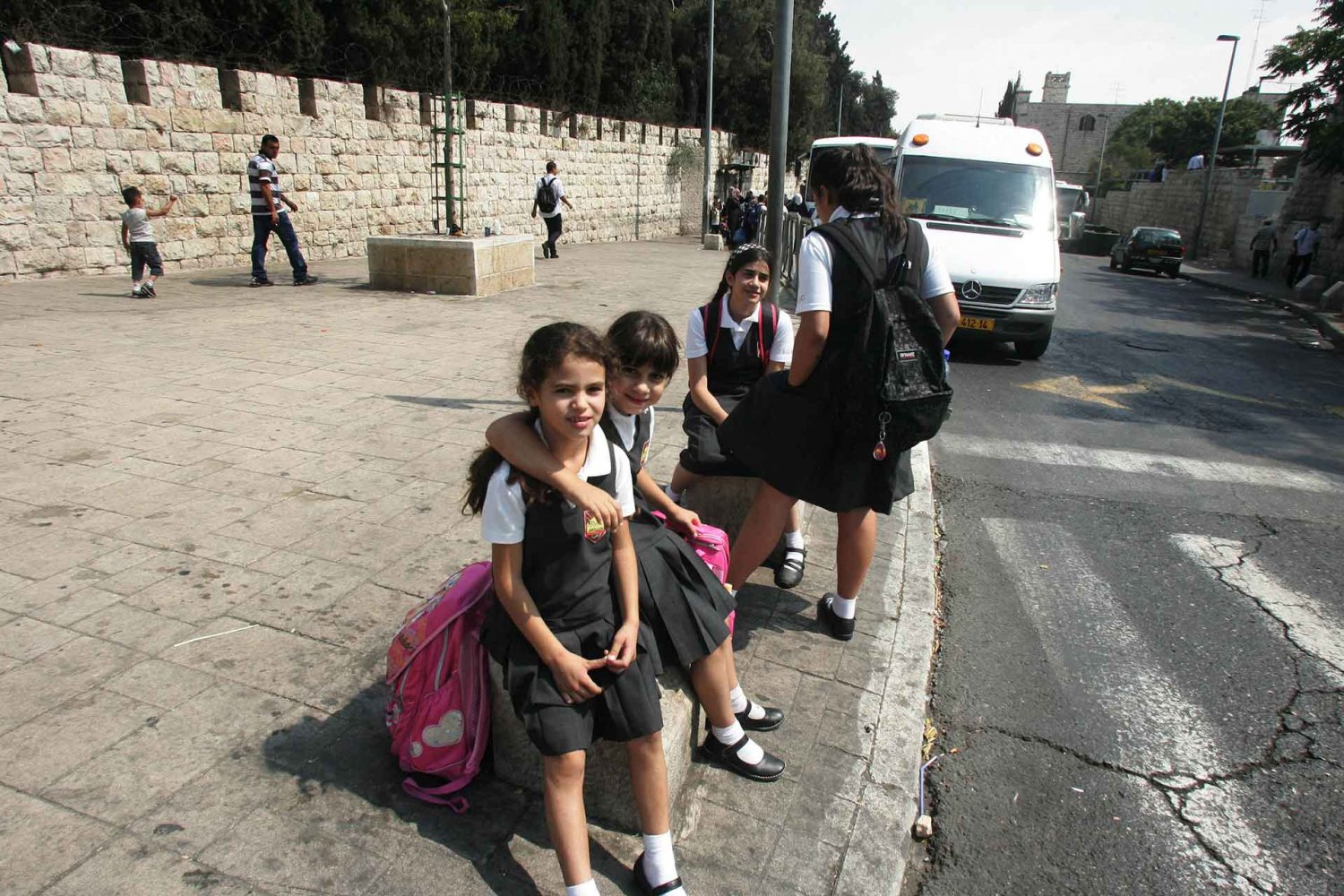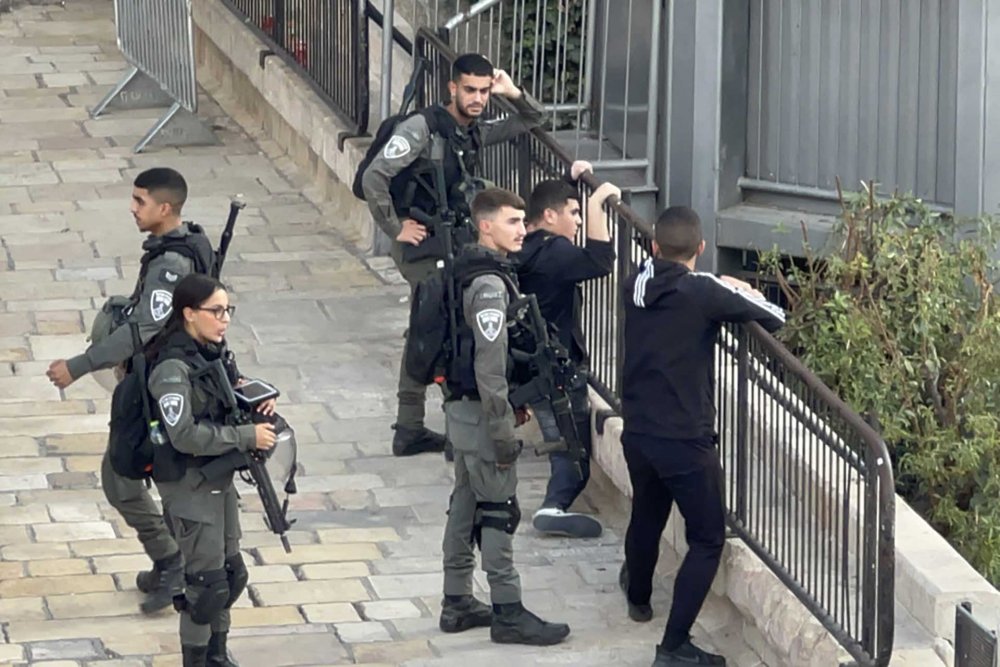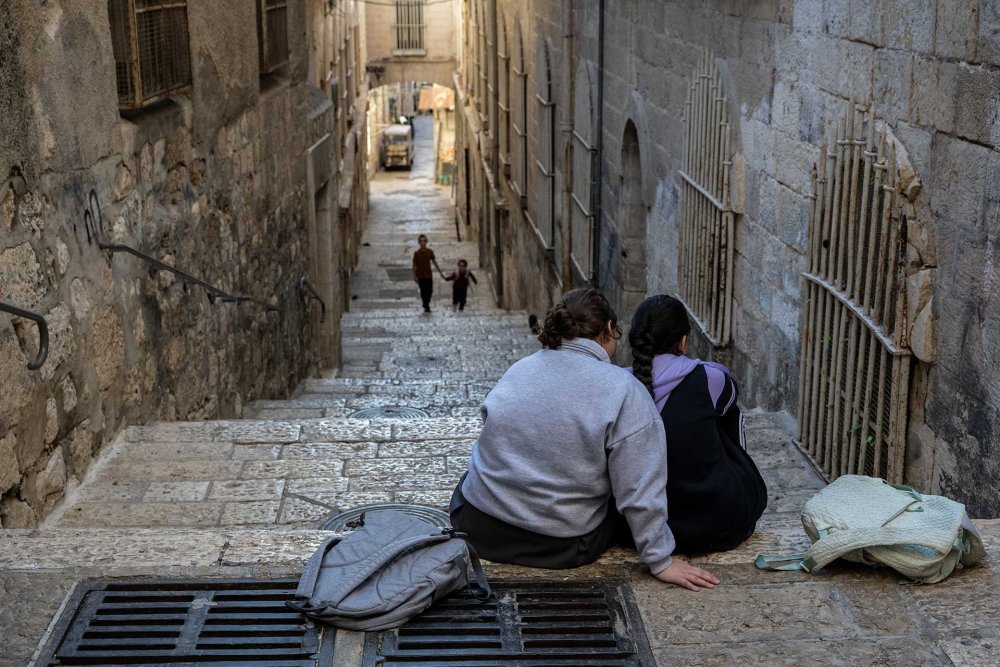The government has also armed and deployed roving civilian militias of settlers toting assault rifles throughout the city.
Palestinian pedestrians—including schoolchildren in their own classrooms—can be randomly stopped, invasively searched, and ordered to produce their cell phones, and their social media posts can be used to justify criminal charges.
Adel Ghizawi, head of East Jerusalem’s parents’ committee, explained many Jerusalemite students and educators live in the city’s suburbs, beyond the Separation Wall.
“The journey for students to go to school requires that they pass checkpoints, which are deadly and dreadful and very tiring in the morning,” Ghizawi told Jerusalem Story. “It is getting more and more complicated, even with the towns inside Jerusalem.”1 Students are subject to beatings, insults, and constant inspections, including of their phones.
Ghizawi elaborated on how authorities closed the entrance to the Palestinian neighborhood of Sur Bahir in Jerusalem for two days this week because of an incident.
“You can imagine the hundreds of thousands of people who want to go in and out from one entrance to such a big town,” Ghizawi said. “And we’re talking about a town that is inside the wall and the boundaries of Jerusalem. How about the peripheries that are located outside the wall?” (See Neighborhoods beyond the Wall.)
Palestinian teachers living on the outskirts of Jerusalem are now surrounded by an increased number of checkpoints on their way to work. For instance, the Qalandiya checkpoint, the sole access point into the city for all Palestinians coming from the north, was completely closed for two weeks as of October 7, 2023. Since reopening, it only operates in a partial and restrictive manner.2
Previously, a teacher’s commute would take 1 hour and 20 minutes. Now that trip lasts 3 to 4 hours because of lengthy interrogation procedures.
“Every time they pass any checkpoint, they’re interrogated, they’re asked the same questions, ‘Where are you going? Why are you doing this? Which school are you going to?’” Ghizawi said. “So teachers usually arrive to schools late, very psychologically and physically tired, and this has been massively affecting the educational process and, of course, resulting in poor education.”
On November 12, Ir Amim and the Association for Civil Rights in Israel (ACRI) sent a letter to Israel’s parliament about the police attacks on Palestinian teachers and students on their commute to school.3 This has included verbal assaults, physical attacks, arrests, and invasive body searches.



